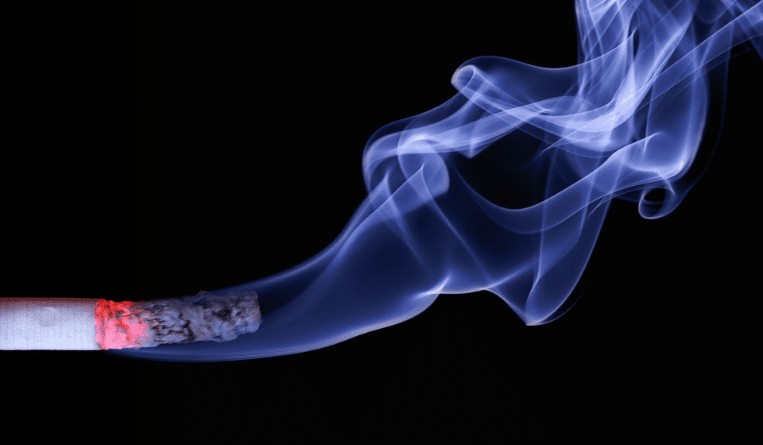Surrogate advertising: ASCI issues fresh guidelines for brand extension advertisements
31 May 2021

Indian law prohibits, or largely restricts, the promotion and advertisement of certain commodities (restricted goods) such as alcoholic beverages, cigarettes and other tobacco products. While advertisement of alcoholic beverages is prohibited, inter alia, on cable TV networks by The Cable Television Networks (Regulation) Act, 1995 and in newspapers through the Norms of Journalistic Conduct issued by the Press Council of India, promotion of cigarettes and tobacco products is prohibited under the above-mentioned laws/guidelines, as well as through The Cigarettes and Other Tobacco Products (Prohibition of Advertisement and Regulation of Trade and Commerce Production, Supply and Distribution) Act, 2003 (COTP), with much broader and stringent provisions. Other legislation regulates promotion of infant milk food, medicinal drugs, public gambling, lotteries, etc.
Notably, some of these regulatory guidelines and laws are media-specific. For instance, while promotion of alcoholic beverages on newspapers and cable TV networks is prohibited, there is no express statutory prohibition on its promotion through social media platforms, thus leading to widespread publicity of such products through Instagram, Twitter, Facebook and the like.
There is, however, the Advertising Standards Council of India (ASCI), a self-regulatory body established in 1985 which, regulates advertisements across platforms. Though not statutory in nature, ASCI has been recognized by law to the extent that the Advertising Code as per Section 6 of the Cable Television Networks (Regulation) Act, 1995 adopts the ASCI’s Code for Self-Regulation (ASCI Code). Apart from regulating advertisements, the ASCI also operates the Consumer Complaints Council (CCC), which is responsible for adjudicating complaints against advertisements received from consumers, and providing recommendations which members of the industry usually abide by despite the ASCI’s lack of statutory powers to ensure compliance.
Brand extensions and surrogate advertisements
Over the past many years, businesses have been working their way around restrictions on advertisement of restricted goods. Advertisements of soda water, music CDs, etc., under brands known for alcoholic beverages are common across television, print media, sponsored events, radio broadcasts, etc. These promotional activities are often termed surrogate advertisements, especially when the brand extension, i.e. the unrestricted good, does not have sufficient market presence, and the members of the public are likely to see the advertisement and relate it to the restricted good. In case of surrogate advertisements, courts usually do not come to the aid of the advertisers, holding that one may not do indirectly that which is prohibited to be done directly.
Therefore, the Delhi High Court in TV Today Network Ltd. v. Union of India [Order dated February 15, 2021 in W.P.(C) 1971/2021] recently refused to stay a direction of the Ministry of Information & Broadcasting to Hindi-language news channel Aaj Tak for displaying an advertisement for All Seasons Club Soda found to be a surrogate for whisky under the same brand. Similarly, in its judgment dated March 14, 2019, a division bench of the Allahabad High Court in Struggle Against Pain v. State of UP & Ors. [PIL No. 12510 of 2006] directed the State of Uttar Pradesh, its Excise Commissioner and police authorities, to, inter alia, ensure that surrogate advertisements of liquor and tobacco products are not displayed in any form in the state. Therefore, the factors and tests to distinguish between a genuine brand extension and a surrogate is crucial to ensure that an advertiser does not fall foul of the law.
In this respect, Rule 7(2)(viii) of The Cable Television Network Rules, 1994 distinguishes a genuine brand extension from a surrogate advertisement by laying down several conditions, including:
-
Only the unrestricted good should be displayed;
-
The prohibited products should not be referred to either directly or indirectly;
-
Phrases or nuances which promote the prohibited good should not be used;
-
The layout, colours or presentation associated with prohibited goods should not be used; and
-
Situations typical to prohibited goods must not be used in the advertisement.
Furthermore, any such advertisement of a brand extension would also need to receive certification from the Central Board of Film Certification prior to telecast/transmission.
However, the above conditions are only applicable to advertisements of liquor or tobacco products through cable TV, and not for other restricted goods, or other platforms/media.
ASCI and surrogate advertisements
Chapter III of the ASCI Code allows use of a brand or company name associated with a restricted good to be used for advertising unrestricted goods in case it is a genuine brand extension, and generally lays down the following factors to be considered in determining whether a brand extension is genuine:
-
Whether the unrestricted good is produced and distributed in reasonable quantities to justify the scale of advertising, media used and markets targeted, and,
-
Whether the advertisement direct or indirect clues/cues which would lead a consumer to associate the advertisement with the restricted good?
However, the above criteria were subjective, insofar as what is a ‘reasonable’ quantity of unrestricted good required to be produced/distributed to justify advertisements remained uncertain.
While certain ASCI guidelines to distinguish surrogate advertisements from genuine brand extensions did exist, they were not comprehensive. To meet this challenge and bring forward a uniform, objective criterion which clearly distinguishes the new entrants in the market from old, the ASCI, on March 18, 2021, issued fresh brand extension guidelines applicable from April 1, 2021. As per this, the brand extension product/service must be registered with the appropriate government authority for GST, FSSAI, etc. (as applicable) and meet the following conditions:
A) If the brand has been present in the market for over two years (calculated from date of first invoice):
-
National sales turnover over Rs50 million (US$685,000) or sales turnover over Rs10 million (US$137,000) in any state where distribution has been established; and
-
A certificate to validate the above issued by an independent organization (such as Nielsen IQ or a category-specific industry association) or by an independent and reputed chartered accountancy firm.
B) If the brand was launched in the market within the last two years (calculated from date of first invoice):
-
Net sales of Rs2 million (US$27,400) per month since launch (sales to subsidiary or sister concern not included); or
-
Demonstrated fixed asset investments (excluding any expense related to advertisement) exclusively associated with the brand extension of not less than Rs100 million (US$1.37 million); or
-
In case manufacturing/procurement of the brand extension is outsourced, evidence including board resolutions or contracts with manufacturers/service providers for over a period of one year that clearly demonstrate possibility of achieving turnover as per B(i); or
-
Turnover greater than 10 percent of turnover of the same brand (including sub-brands) in the restricted category.
The guidelines further stipulate that evidence to show meeting of these above-mentioned conditions must include a certificate to that effect from a reputed and independent chartered accountancy firm.
Notably, the ASCI guidelines are mandatory, and therefore, any brand extension which does not meet the above criteria will be considered a surrogate as per the ASCI code. As a necessary corollary, the above conditions also stand incorporated into the Advertising Code as per The Cable Television Networks (Regulation) Act, 1995, and are therefore, mandatory for a brand extension advertisement to be shown on cable TV networks as well.
Therefore, the ASCI has laid down an objective and mandatory criteria to distinguish genuine brand extensions from surrogate advertisements. This is an attempt to bring clarity on the minimum requirements for a business to be able to advertise a brand extension of a restricted good without falling foul of regulations. Having said this, one must await future decisions of the CCC to determine whether meeting the minimum threshold as per the guidelines would be sufficient, or if the ASCI will also judge the scale of advertisements on the touchstones of production and distribution of the brand extension as per Chapter III of the ASCI Code.









